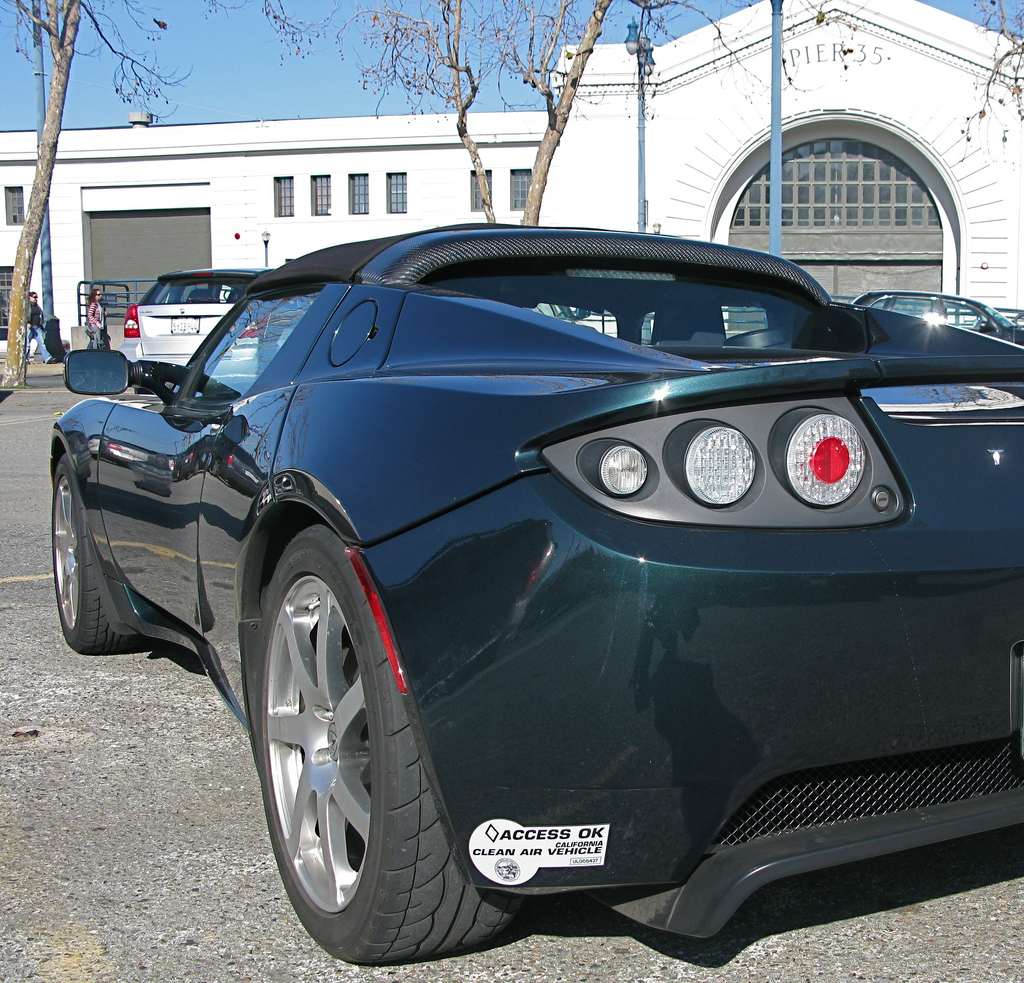California may be a haven for plug-in electric cars, but it's also home to many of the most-polluted cities in the U.S.
Of the 10 most polluted U.S. cities in the American Lung Association's State of the Air report (via Mashable), seven are in the Golden State.
Topping the lists if the combined Los Angeles-Long Beach metropolitan area, followed consecutively by Visalia-Porterville-Hanford, Bakersfield, Fresno-Madera, and Sacremento-Roseville.
The only other state with more than one city on the list was Texas: Houston and Dallas-Fort Worth were sixth and eighth, respectively, separated by Modesto-Merced, California.

Tesla Roadster with CA Clean Air Vehicle sticker -- flickr user jurvetson
High pollution is precisely why California has historically set its own emissions standards, mandating pollution controls well before the 1970 establishment of the U.S. Environmental Protection Agency.
The state's powerful Air Resources Board has also twice introduced zero-emission vehicle mandates that requires manufacturers to sell a certain percentage of those vehicles.
The first attempt in the 1990s didn't stick, but today California has the third-highest percentage of electric cars in the U.S., including several "compliance-car" models built specifically to keep manufacturers in line with the mandate.
The state government also offers owners of plug-in electric cars incentives in the form of solo carpool-lane access (although green stickers for plug-in hybrids have run out for the moment) and rebate checks of $2,500 for zero-emission vehicles and $1,500 for plug-in hybrids under the Clean Vehicle Rebate Program.
While incentives for hybrids were phased out in 2011, the Toyota Prius remains the most popular car line in California--due in part to its fuel efficiency, since the state's special blend of gasoline routinely costs more than $4 a gallon.
Yet despite California's adoption of stricter regulations and the public's enthusiasm for green cars, polluted cities show that there is still much work to be done.
One major step is the ongoing implementation of new Corporate Average Fuel Economy (CAFE) rules at the Federal level, which will require 2025-model year vehicles to achieve 54.5 mpg. That translates to an EPA gas-mileage rating of about 42 mpg on the window sticker.
Those rules are largely based on carbon-reduction levels originally established by the state's Air Resources Board, which continues to be a leader in emissions reduction for the nation--even when carmakers and other states push back.
_______________________________________________












